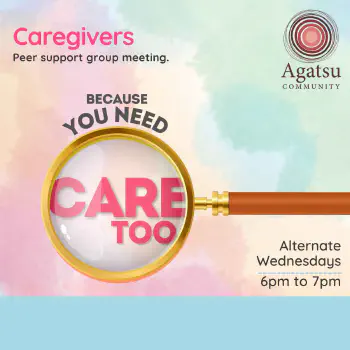Peer Support - Caregivers
Replies in 48 working hours (2 days).Direct Sign Up Form Available.
A safe space for anyone who is a caregiver to someone struggling with a mental health disorder or any chronic ailment.
FAQ
-
Who is this support group for?
Anyone who is a caregiver to someone struggling with a mental health disorder or any chronic ailment.
You may clarify the above details with them directly. Get to know them 👇
Key Details
Fee
₹ 0
Notes
Meets every Wednesday from 6pm to 7pm
PS: Peer Support - Caregivers's group details were last updated on 3 August 2023, and are waiting for them to let us know if these are still accurate. In case you find out that the details on this profile aren't accurate, please let us know! 🙂
PS: Peer Support - Caregivers's group details were last updated on 3 August 2023, and are waiting for them to let us know if these are still accurate. In case you find out that the details on this profile aren't accurate, please let us know! 🙂
Languages
Medium
•
🌐
Online
City & Area
Mumbai
(51, Pali Village, Bandra west, Mumbai - 50)
Facilitated By
Lived experience facilitators
Frequency
Every Wednesday
This meetup is part of our handpicked list of communities 🤗
Carefully curated
Community-led
Reach out directly. No Gatekeeping.


